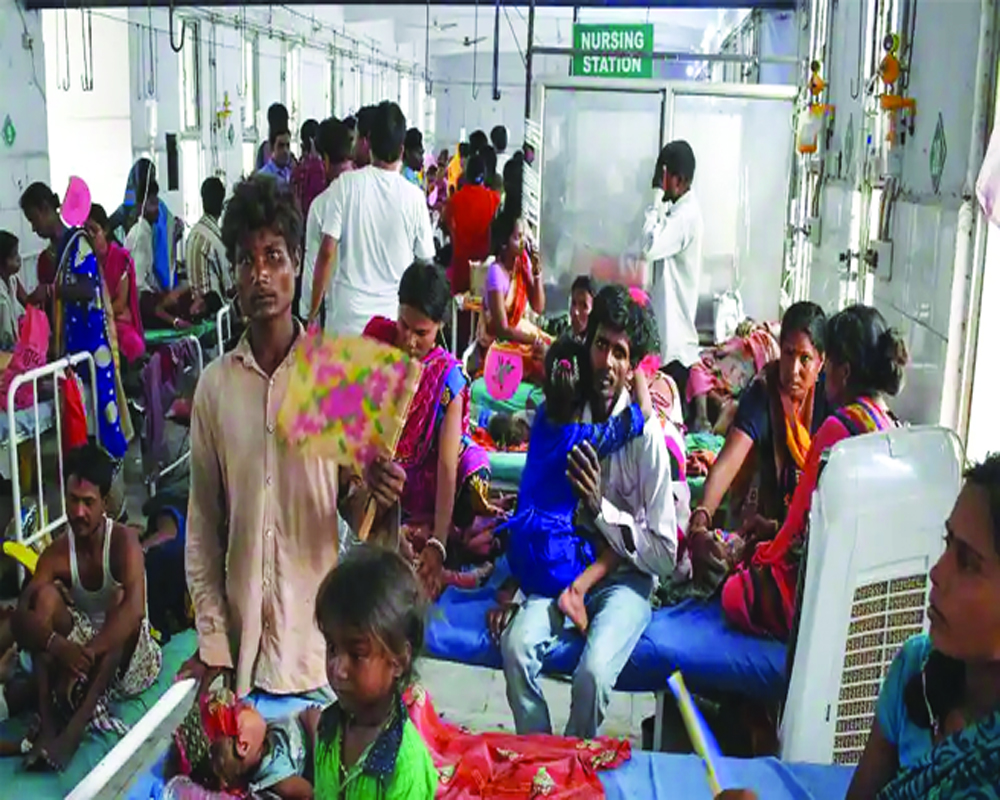It is necessary to understand what links early life adversity to poor adult health
There is a widely held belief that our health is largely preordained by the genes we inherit from our parents. Indeed, this lottery of inheritance plays an instrumental role in some health outcomes. Early onset diabetes is an example of an inherited disease which,although debilitating, is relatively uncommon with only three new cases per 100,000 children in India. Late onset diabetes is much more common afflicting 12 per cent in urban populations and, like most predominant diseases,lacks a clear pattern of inheritance. The evidence suggests a greater role for nurture (environment) rather than nature (genes) in maintaining well being.That is good news because we can improve the environment. Chronic pain (pain that lasts longer than three months) is another debilitating condition that lacks clear genetic origins. It is much more common than all forms of diabetes, estimated to affect approximately 20 per cent of adults in India. A report this year reveals that pain of the lower back and extremities afflicted 83 per cent of an adult population in rural Gadchiroli in Maharashtra in a period of one year, leading to 11 lost workdays per study participant.
In addition to unquantifiable personal suffering, the estimated economic costs of lost work and medication are staggering; each person with pain lost 4.9 per cent of the annual per capita regional income. Even a small reduction in the prevalence of chronic pain would be exceptionally beneficial. Unfortunately, pain treatment options have limited efficacy and for many recuring chronic pain becomes a way of life. However, not all adults living in similar circumstances are vulnerable to chronic pain. Some are remarkably resilient. If this is not because of genetics, then why are some vulnerable and others resilient? The answer may lie in exposure to childhood adversity. Adverse childhood experiences include physical or emotional abuse, neglect and domestic violence. The World Health Organisation describes adverse childhood experiences as the most common and intense childhood stressors. Many of us experience at least one and children exposed to several adverse events are likely to have more frequent and severe health problems later in life, including chronic pain. Furthermore, childhood adversity is emerging as a leading contributor to health disparities, disproportionately affecting the poorest in society. There is a strong relationship between exposure to childhood adversities and social deprivation. However, there is a lack of screening for exposure to childhood adversity, which might otherwise enable targeted health interventions. Reasons for this include inconsistent screening methodsand poor understanding of factors that may contribute to vulnerabilities following exposure. The Consortium Against Pain Inequality (CAPE), led by the University of Dundee, seeks to overcome these deficiencies in understanding. CAPE will develop a comprehensive tool for screening exposureand establish mechanisms linking early life adversity to chronic pain in adulthood. By understanding what links early life adversity to poor adulthealth, we hope to address pain inequality by identifyingthose at greatest risk and providing tailored interventions. By raising awareness of the long-termimpact of childhood adversity we will promote efforts to improve childhood and adult well being.
(The writer is Professor of Anaesthesia and Principal Investigator of the Consortium Against Pain Inequalities at the University of Dundee, UK. The views expressed are personal.)


























